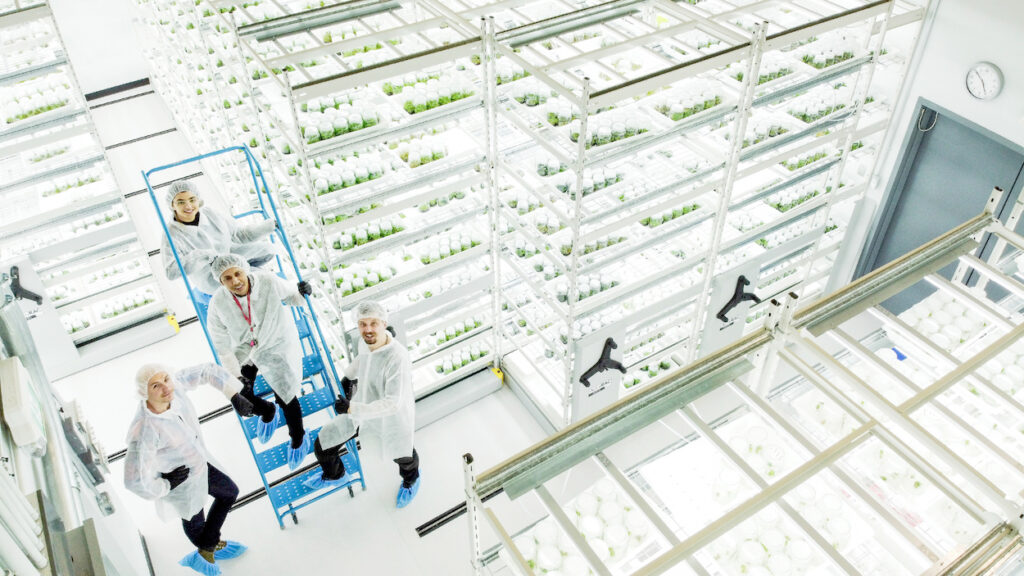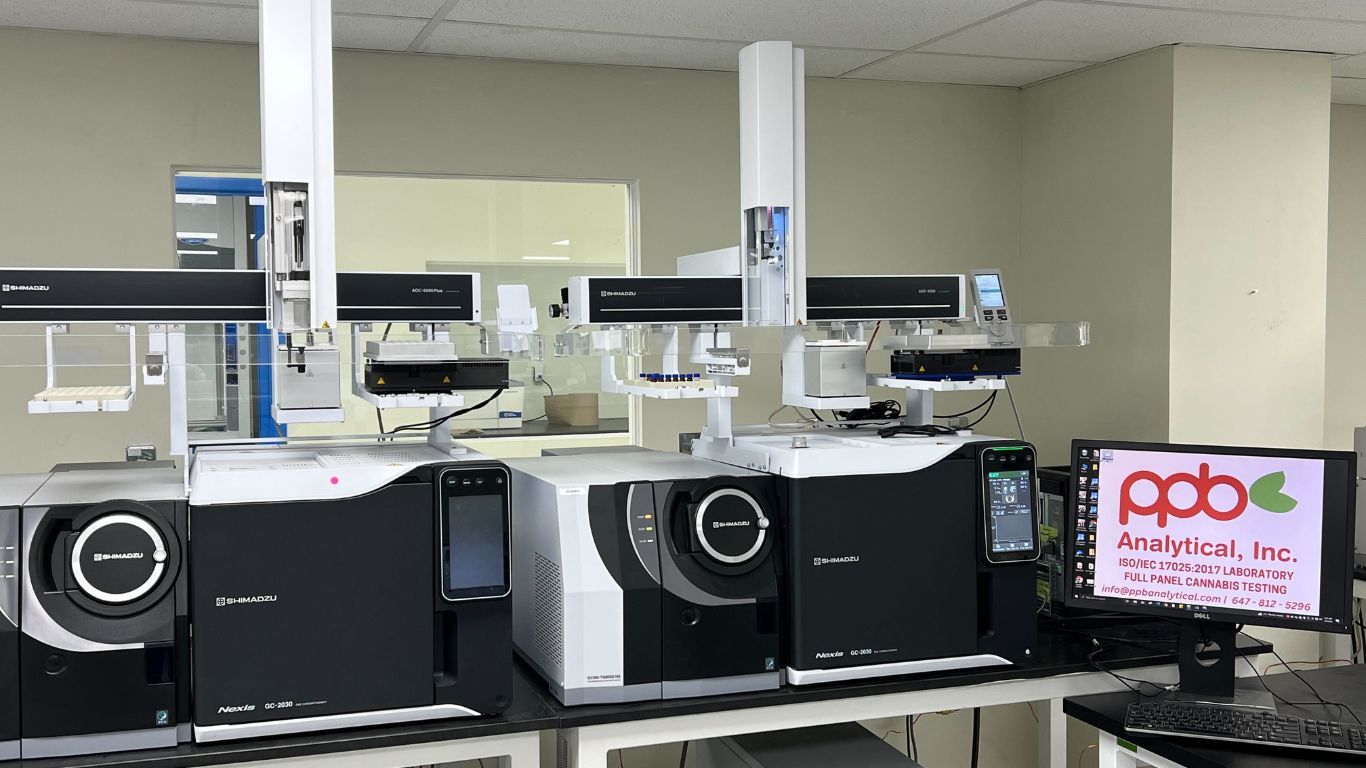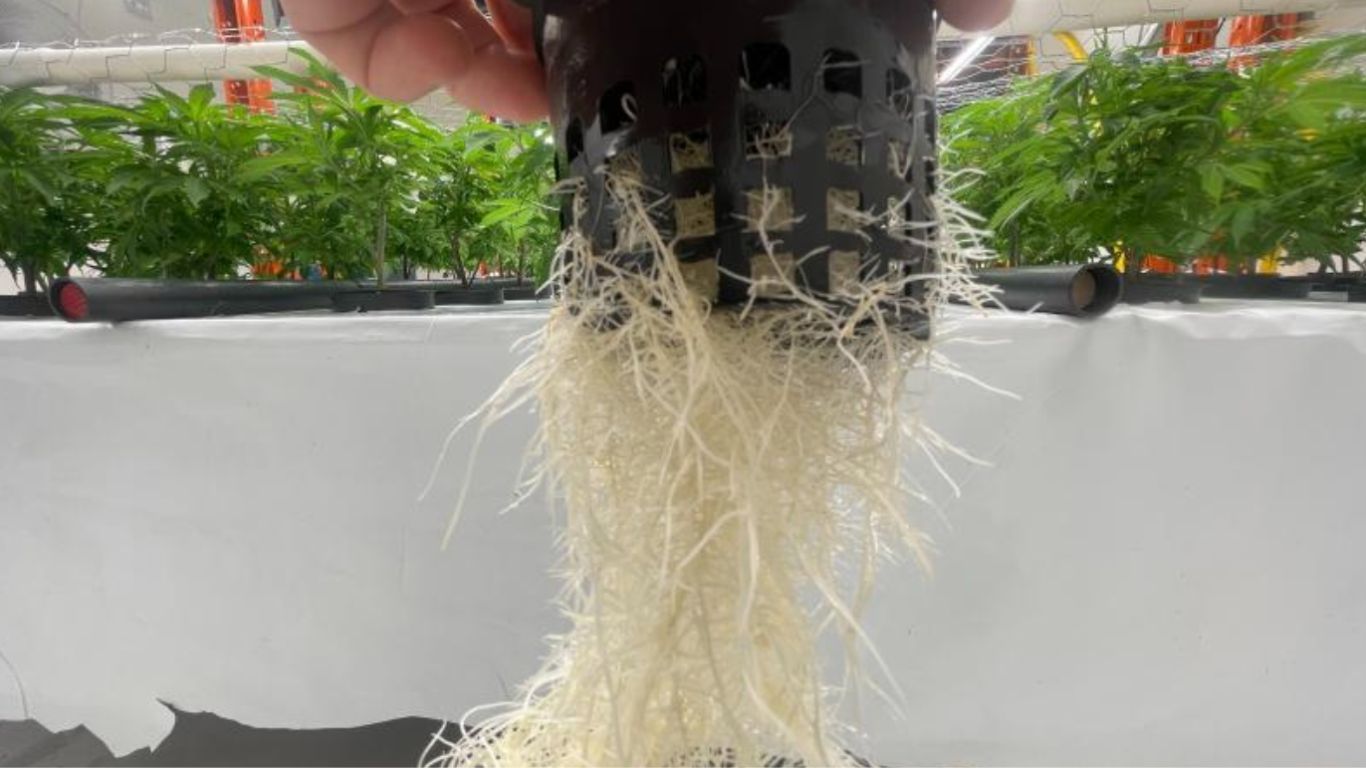
| COMPANY: | Segra International |
| LICENCE TYPE: | Nursery |
| APPROACH: | Indoor nursery, tissue culture |
| TIMELINE: | |
| COST: | Plant tissue culture and molecular biology facilities start up: $2 |
| FACILITY: | Indoor & Laboratory |
Vancouver-based Segra International has emerged as a global leader in bringing ag-tech to the Cannabis space.

A pioneer in bringing the proven cloning technology of Plant Tissue Culture (PTC) to Cannabis, Segra is a company focused both on innovation and helping cultivators grow at tomorrow’s standards today. PTC is a technology widely used in other clonally produced crops that allows propagation without the use of mother plants – instead, plantlets are developed from germplasm in a sterile laboratory environment, allowing a cultivar to be replicated disease-free and at scale, whether a grower needs one plant or 100,000.
Segra’s focus pivoted into honing the technology of plant tissue culture for cannabis and building a diverse library of stabilized cultivars for both research and production uses.
“Segra was founded in 2015 with the initial objective of producing standardized cannabis for clinical trials,” says Jamie Blundell, who joined as CEO in March bringing extensive cannabis capital markets as well as B-to-B corporate management expertise to the Segra team. “However, as the company explored plant tissue culture specifically, we saw the significant need for that service globally. Segra’s focus pivoted into honing the technology of plant tissue culture for cannabis and building a diverse library of stabilized cultivars for both research and production uses.”
Operating large mother stock and cloning operations is very expensive and also risky from a pest management prospective.
The Need for a New Method of Cloning
Ian Davidson, Segra’s Director of Global Business Development, saw the need for a modernized approach to young plant propagation while working in the cannabis industry in California. “While in the process of developing some of the largest licensed greenhouse cultivation sites in California, I realized that young plant propagation was a critical bottleneck in our plans to scale up. Operating large mother stock and cloning operations is very expensive and also risky from a pest management prospective.”
Segra believes that tissue culture of cannabis is the new frontier and an opportunity for the industry to follow ag-tech best practices for other clonally produced crops, as a way to produce millions of plants at scale for a global industry.
Canadian Focus – and a Global Reach
Since receiving its Cannabis Nursery License from Health Canada in late 2019, Segra has begun working with indoor and greenhouse licensed producers from across Canada and has recently signed a supply deal with a large outdoor producer in Canada. With the help of the company’s proprietary processes, they are able to reach far beyond Canada’s borders by shipping plantlets in innovative compact boxes that can hold thousands of plantlets with a shelf life of five days – long enough to reach any corner of the globe. Segra has signed a supply deal with a licensed producer in South Africa and is in discussions with companies in several other countries with federally legal cannabis status. They are also engaged in research projects with the University of British Columbia and Simon Fraser University.
This Regenerate and Preserve program offers substantial risk mitigation and peace of mind for licensed producers against catastrophic failures and the resulting loss of cultivars at production facilities.
Blundell says their 3,500 square foot lab can produce up to two million plantlets a year, a number they estimate is a fraction of the future demand in Canada, let alone the global markets. As the industry grows and demand for PTC takes hold with cultivators, Blundell says Segra can easily scale up to meet demand, at their current location and with the possibility of an expanded facility in Canada.
Segra’s flagship services include DNA fingerprinting of cannabis cultivars, allowing cultivators to inexpensively confirm the genetic identity of their plants, secure cultivar genetic banking, designed to provide safe storage of IP, and the provision of verified true-to-type and disease-free tissue culture plantlets for mother stock provision or production uses. Segra has built one of the world’s largest libraries of cannabis genetics, with hundreds of unique cultivars, and an ever-growing number ready for propagation.
PTC as a wide-ranging tool
Davidson explains that there are essentially two different approaches to plant tissue culture. The first uses the technology as a tool for agricultural research and genetic engineering, while the other, which is Segra’s approach, is for mass propagation of starting material known as micropropagation.
It’s about predictable yields and a consistent, tighter range when it comes to quality or chemotype expression. All that means better operational and financial performance.

Through the use of micropropagation, Segra can work with cultivators and nurseries to not only “clean” their genetics of any disease organisms, but also securely store those genetics indefinitely, as well as supply plantlets at scale and on schedule for production, research or breeding purposes in the future. “This Regenerate and Preserve program,” Davidson says, “offers substantial risk mitigation and peace of mind for licensed producers against catastrophic failures and the resulting loss of cultivars at production facilities.”
Segra’s DNA Fingerprinting allows for complete supply chain certainty. “We guarantee that every batch of plantlets that goes out the door is what it’s supposed to be, in addition to being clean and free of diseases and pathogens,” says Blundell.
“If we want to be a reliable resource, these things are critical,” adds Davidson. “If you were going to buy millions of strawberry plants, you’d get this same level of quality assurance, and we’ve been striving to build that from day one.”
We’re looking to partner with companies that want to learn together as we unfold what we believe to be a very disruptive and positive transformation for the sector.
Collaboration with cultivators
“We’re very excited to collaborate,” says Davidson “We have a platform for plant breeders that is an amazing tool to commercialize the hard work they’ve put into creating unique cannabis cultivars. So that’s a big piece of our strategy – to partner with other genetic providers and help bring their products to market, globally.” “It’s not just about starting with healthier plants,” adds Blundell. “It’s about predictable yields and a consistent, tighter range when it comes to quality or chemotype expression. All that means better operational and financial performance.”

Blundell says virtually all growers are utilizing traditional vegetative propagation consisting of growing out mother stock plants and taking cuttings from those mothers. However, as the industry evolves, he sees many growers shifting to using tissue culture propagators like Segra for their starting materials, so they can focus entirely on growing.
In the near-term, though, Segra sees a strong industry trend emerging amongst forward-thinking cannabis growers where mother stock plants are being produced in small batches from tissue culture. “Segra is happy to support growers by providing PTC plantlets for use as clean mother stock, as they become familiar with the technology,” Blundell says.
“It’s a big educational effort that we’re undertaking, to help cultivators understand and appreciate the benefits of PTC. It’s a huge shift from the current cultivation model, but one that we believe will create real value for all steps of the supply chain. We’re looking to partner with companies that want to learn together as we unfold what we believe to be a very disruptive and positive transformation for the sector.”
“We’re an ag-tech company at our core,” says Davidson. “So we are focused on innovation. We’re a nursery but more than that, we want to be part of creating and bringing forward the cultivars of the future. That’s really the goal.”











